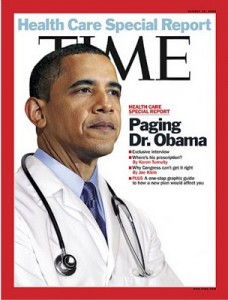(ThyBlackMan.com) Soon, very soon the SCOTUS will hear arguments for and against President Obama’s Health Care Law. The central target of debate will be the “minimum coverage requirement.” Most folk call it the “individual mandate.” Opponents assert that by requiring or mandating by law for people to have to buy a service or product such as insurance may lead to laws that will allow the government to make folk purchase anything.
When I first read the 2300 plus page proposal some call “Obamacare,” I did not read anything that really served to improve health outcomes. It did and still doesn’t include dental or eye care, which I find bazaar. Also, if anything is essential for improved health care it is nutrition (food) more so than having insurance.
On occasion, I spoke with folks regarding the President’s efforts in an attempt to facilitate a cogent discussion of his plan and its desired outcome. However, no one I came across had ever read the bill and knew nothing of its specifics. I agree that something needs to be done; especially in economic terms and given that the disparities in health in the US in terms of race and ethnicity are in dire need of serious action and attention. Moreover, the US Medicare/Medicaid budget has ballooned by most estimates from $600 billion in 2008 to $740 billion in 2010. Not to mention that long term unemployed without unemployment benefits become eligible for Medicaid currently. It is estimated that the US spends 16 percent of its GDP on health care alone – two times more than Japan and 60 percent more than German, yet we are less healthy than either of these nations. At this rate, morbidity and mortality aside, more than half (my math) of the federal budget will account for health care by 2020. 
The logic is infallible. Obama’s plan, issues concerning liberty and the individual mandate aside, is not a health plan, doesn’t address issues of increased cost or affects improved health care or better outcomes. To assert the supposition it does is like saying having auto insurance decreases accidents. It is not an issue of health insurance because our entire health care delivery system is what needs fixing. Ample data suggest that even if people have insurance it will not deal with core problems like the fact that Americans spend more than $700 billion each year, or 5 percent of gross domestic product, on medical services of no discernible value – that are unnecessary. As I stated, “insurance is not the same as health care.” Successful reforms in health delivery must target providing incentives for doctors and patients to control costs and experiment with alternative, more effective ways to deliver health care. The logic that it is the growing population of the uninsured that are driving health care costs higher is not true. More impactful are raising costs and a health insurance market in which the people will continue to be the victims as opposed to the benefactors.
Obama’s plan, albeit an effort more to fix the problem than the GOP, doesn’t deal with cost at all; it only assures insurance companies make more money. It doesn’t obviate or change present practices that allow health care providers to make more money for poor delivery practices. It provides no incentives for the issuance of quality care although research documents that inefficient medical practices, including of asking for unneeded procedures only result in providers making higher profits and poor health outcomes for patients. Nothing in the bill “mandates” that cost is provided up front to patients for procedures before application (like paying a plumber up front to do work without knows what work will be done or even if it is required to fix the problem.)
Maybe it should be expected that the health insurance lobby would win out over the people on Main Street. Most of the Law’s support outside of democrats comes from big time K street lobbyist. These include Pharmaceutical Researchers and Manufacturers of America (which alone spent $26.1 million lobbying for Obamacare in 2009) and also paid for a multimillion dollar ad blitz in districts of potential swing Democrats to help secure passage and some of the largest health insurance providers in the country: UnitedHealth Group, WellPoint, Aetna, Humana and Cigna.
Ever since the healthcare debate began over a year ago, shares of Cigna, UnitedHealth Group and WellPoint have been up an average of 120%. When the bill passed and became law, health insurer’s stocks soared for Aetna (had a 52 week high) and Cigna (increased 375% compared to 46% for the stock market overall since November 2008). The same was true for Health provider corporations, seeing that just one day after the passage of the bill, shares of Health Management Associates, Tenet Healthcare and Community Health Systems all jumped 11%, 9%, and 6% respectively. But again, it only makes sense when America’s Health Insurance Plans (AHIP) – a national political advocacy and trade association for the health insurance industry favored universal coverage and supported the law.
Like I said, I applaud the President’s attempt, but rational folks should know that we are still not addressing the problem of rising out of control health care cost, issues with Medicare or Medicaid eventually insolvency and improving healthcare outcomes for American citizens. If anything, the singular certainty is that insurance and hospital corporations will get richer while we get sicker. To date, The World Health Report 2000, Health Systems: Improving Performance, ranked the U.S. health care system 37th in the world.
Staff Writer; Torrance Stephens

















1 Comment